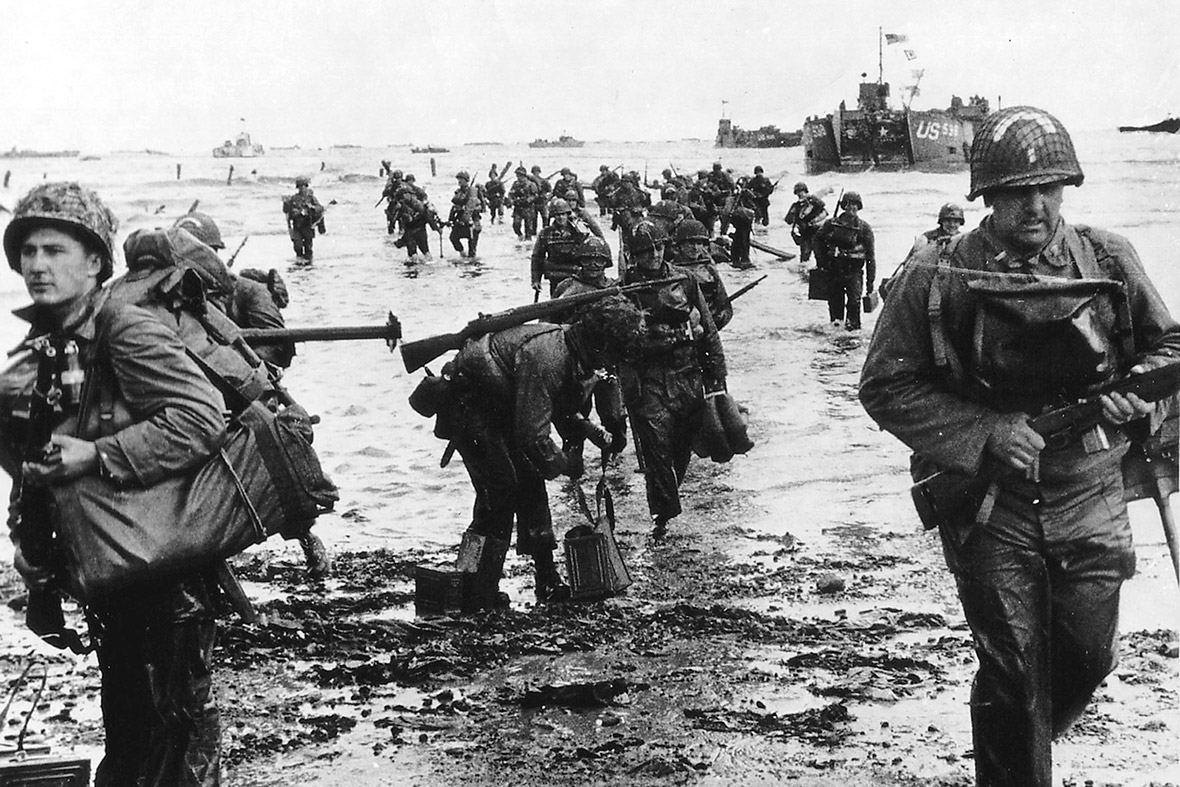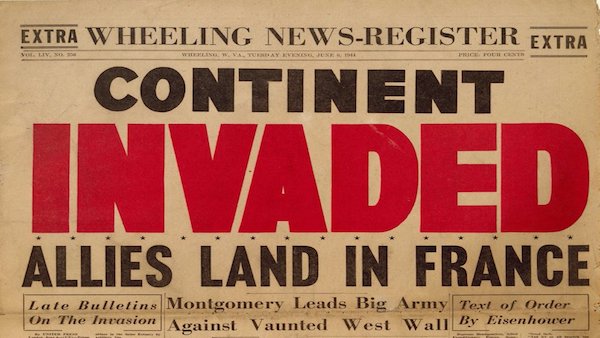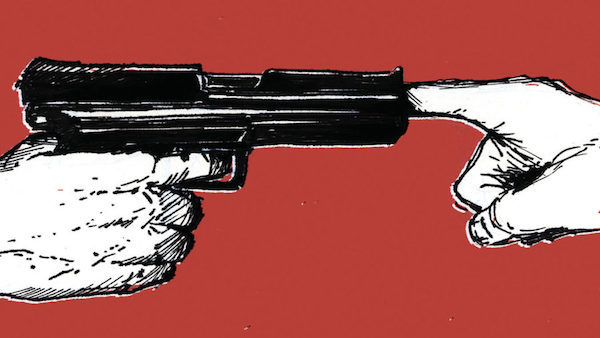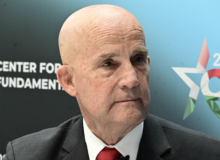On June 6, 1944, more than 160,000 Allied troops landed along a 50-mile stretch of heavily-fortified French coastline, to fight Nazi Germany on the beaches of Normandy, France. Codenamed Operation Overlord, Gen. Dwight D. Eisenhower called the operation a crusade in which, “we will accept nothing less than full victory.” More than 5,000 Ships and 13,000 aircraft supported the D-Day invasion, and by day’s end, the Allies gained a foot-hold in Continental Europe.The invasion was one of the largest amphibious military assaults in history and required extensive planning.The cost in lives on D-Day was high. More than 9,000 Allied Soldiers were killed or wounded, but their sacrifice allowed the allies to begin the slow, hard slog across Europe, to defeat Adolph Hitler’s troops.
The movies call D-Day “The Longest Day,” but a more apt description would be “The Day That Saved The World.”

Note to College Snowflakes: Unlike What You Whine About, These Heroes Were REALLY Leaving Their Safe Zones
D-Day was the reason Gen. Eisenhower was chosen to be Supreme Allied commander in Europe. Despite his requests to join the action, he spent WWI stateside because the Army believed his logistical skills made him too valuable. The invasion at Normandy was a logistical miracle, (getting the men and supplies where they had to be) and Ike was the guy to do it. Even after the landings, from a “war management” standpoint the crucial part of the operation was keeping the fragile bridgehead supplied so that it could withstand the German counter-attacks.

The most important part of D-Day however, were the heroes who fought against a well-fortified German force that had the advantage of higher ground. The Nazis had position but the allies had a greater advantage; the will and determination of the dedicated heroes who were part of the forces that stormed the beaches of Normandy. Many of these young men didn’t leave the Normandy beaches alive, some didn’t even make it to the beaches. If it weren’t for the sacrifice of these heroes the Empire State Building might very well have become the world’s tallest German Schnitzel stand.

As the soldiers were about to cross the English Channel General Eisenhower gave them this message:
Soldiers, Sailors and Airmen of the Allied Expeditionary Force! You are about to embark upon a great crusade, toward which we have striven these many months. The eyes of the world are upon you. The hopes and prayers of liberty loving people everywhere march with you. In company with our brave Allies and brothers in arms on other fronts, you will bring about the destruction of the German war machine, the elimination of Nazi tyranny over the oppressed peoples of Europe, and security for ourselves in a free world.
Your task will not be an easy one. Your enemy is well trained, well equipped and battle hardened, he will fight savagely.But this is the year 1944! Much has happened since the Nazi triumphs of 1940-41. The United Nations have inflicted upon the Germans great defeats, in open battle, man to man. Our air offensive has seriously reduced their strength in the air and their capacity to wage war on the ground. Our home fronts have given us an overwhelming superiority in weapons and munitions of war, and placed at our disposal great reserves of trained fighting men. The tide has turned! The free men of the world are marching together to victory!
I have full confidence in your courage, devotion to duty and skill in battle. We will accept nothing less than full victory!
Good Luck! And let us all beseech the blessings of Almighty God upon this great and noble undertaking.
— Gen. Dwight D. Eisenhower

Thanks to the blessings of God, the planning of Eisenhower, and the pure will and determination of the heroes who crossed the English Channel and invaded Normandy, we are a free people today. We must thank them, and honor them today and every day, not only in our actions by keeping the freedom they fought for, but in our prayers and memories.
On the 40th Anniversary of D-Day President Ronald Reagan (June 6, 1984) delivered an address at Point-du-Hoc the highest point on Normandy Beach which overlooked Omaha and Utah Beaches:

The men of Normandy had faith that what they were doing was right, faith that they fought for all humanity, faith that a just God would grant them mercy on this beachhead or on the next. It was the deep knowledge — and pray God we have not lost it — that there is a profound, moral difference between the use of force for liberation and the use of force for conquest. You were here to liberate, not to conquer, and so you and those others did not doubt your cause. And you were right not to doubt.
You all knew that some things are worth dying for. One’s country is worth dying for, and democracy is worth dying for, because it’s the most deeply honorable form of government ever devised by man. All of you loved liberty. All of you were willing to fight tyranny, and you knew the people of your countries were behind you.
(…) Here, in this place where the West held together, let us make a vow to our dead. Let us show them by our actions that we understand what they died for. Let our actions say to them the words for which Matthew Ridgway listened: “I will not fail thee nor forsake thee.”
If a similar speech was given by Barak Obama it would be an apology for messing up the French coastline. But Reagan’s full speech encapsulated why we needed to fight at Normandy, and why we must fight for freedom every day. That address is embedded below:
God Bless the heroes who served that day in Normandy and with the help of the Lord, saved the world from tyranny.







